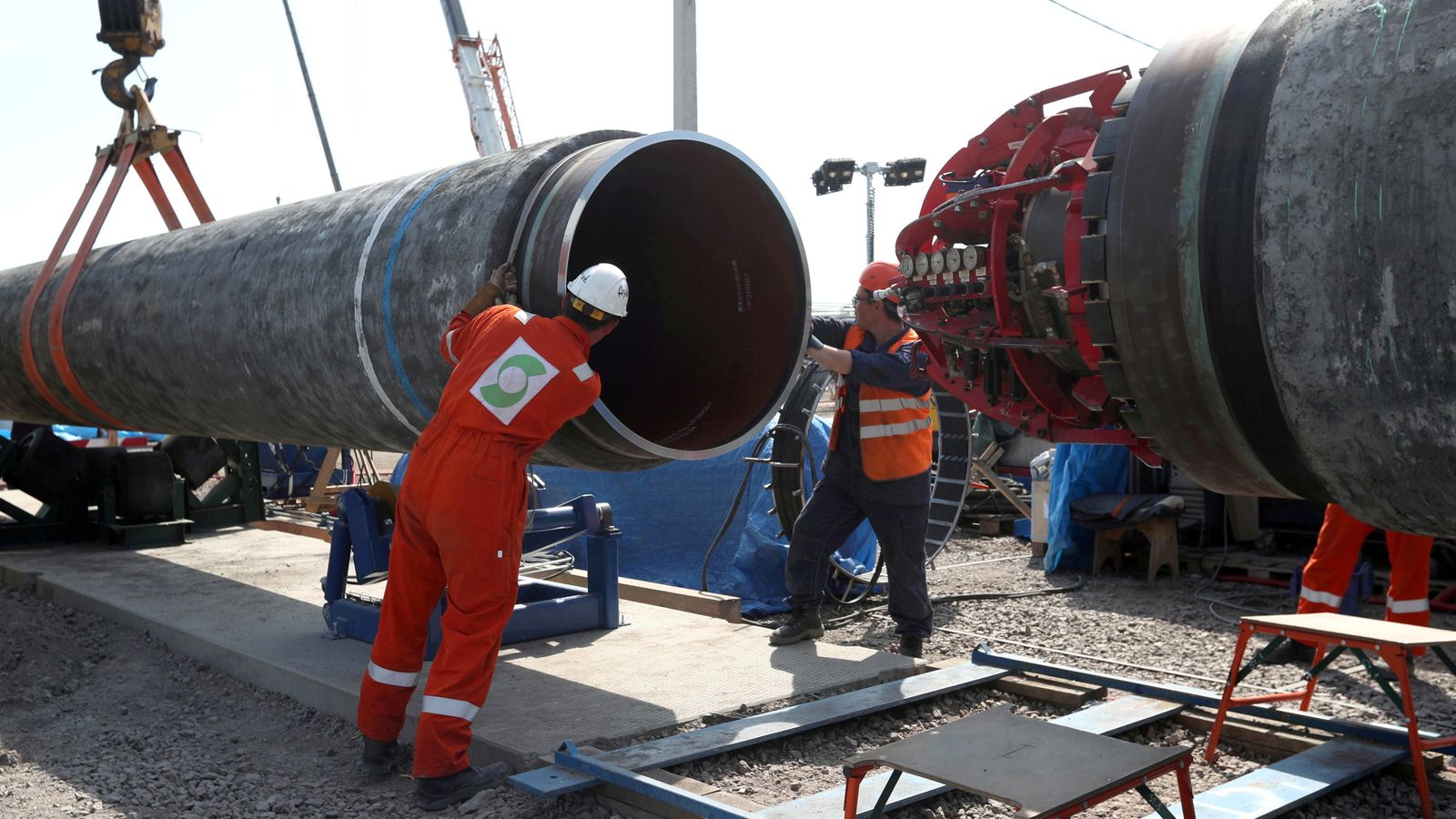The United States and Germany have announced a deal to allow the completion of a controversial Russian gas pipeline to Europe without further sanctions.
The agreement aims to allay fears about European dependence on Russian energy.
However, critics have said the deal does not go far enough.
American officials had opposed the project, which would allow Russia to export gas directly to Germany and potentially cut off other nations.
But under the terms of the deal, the US and Germany committed to impose costs on Russia to prevent it from using the $11bn (£8bn) Nord Stream 2 pipeline as a political weapon.
They have also agreed to support Ukraine and Poland – who are both bypassed by the project and fear Russia‘s intentions – by funding alternative energy and development projects.
“The United States and Germany are united in their determination to hold Russia to account for its aggression and malign activities by imposing costs via sanctions and other tools,” they said in a joint statement.
“Should Russia attempt to use energy as a weapon or commit further aggressive acts against Ukraine, Germany will take action at the national level and press for effective measures at the European level, including sanctions, to limit Russian export capabilities to Europe in the energy sector,” it said.
The Nord Stream 2 project has posed a major foreign policy dilemma for the Biden administration.
US officials from both parties have long feared that it would give Russia too much power over European gas supplies, potentially shutting off gas to Ukraine and Poland.
But the pipeline is 98% completed and the US has been determined to rebuild ties with Germany that were damaged during the Trump administration.
In a nod to Poland, Germany also agreed to sign on to the “Three Seas Initiative”, an EU and US-promoted scheme that aims to boost investment, infrastructure development and energy security among the countries bordering the Baltic, Black, and Adriatic seas.
Despite the agreement, there remains strong bipartisan opposition to the pipeline in Congress, as well as in Ukraine and Poland.






















